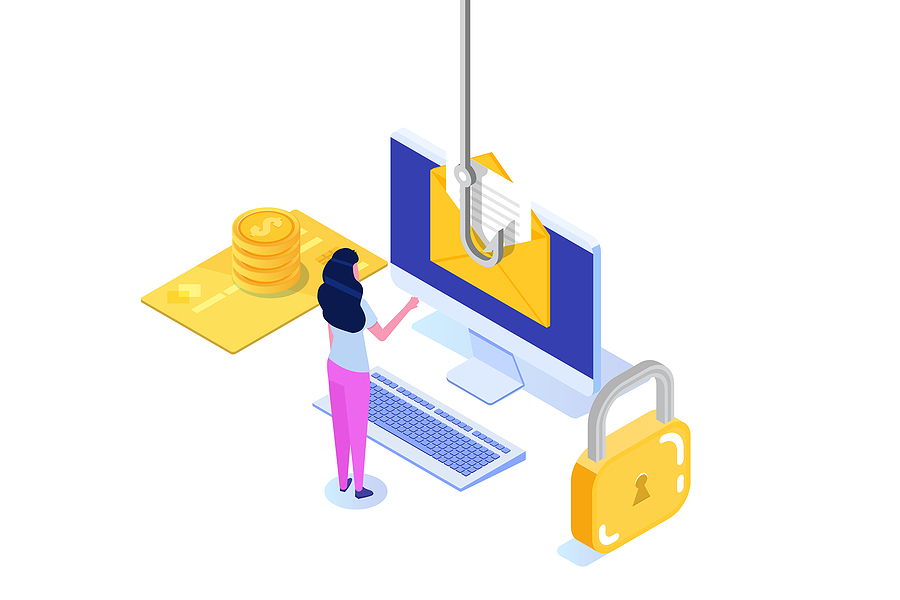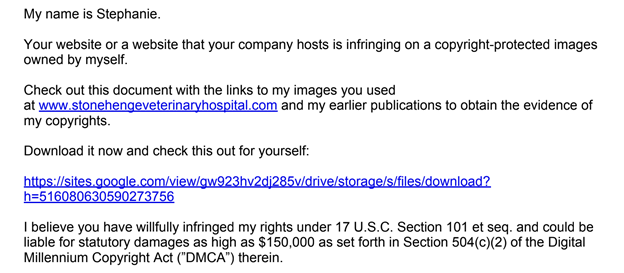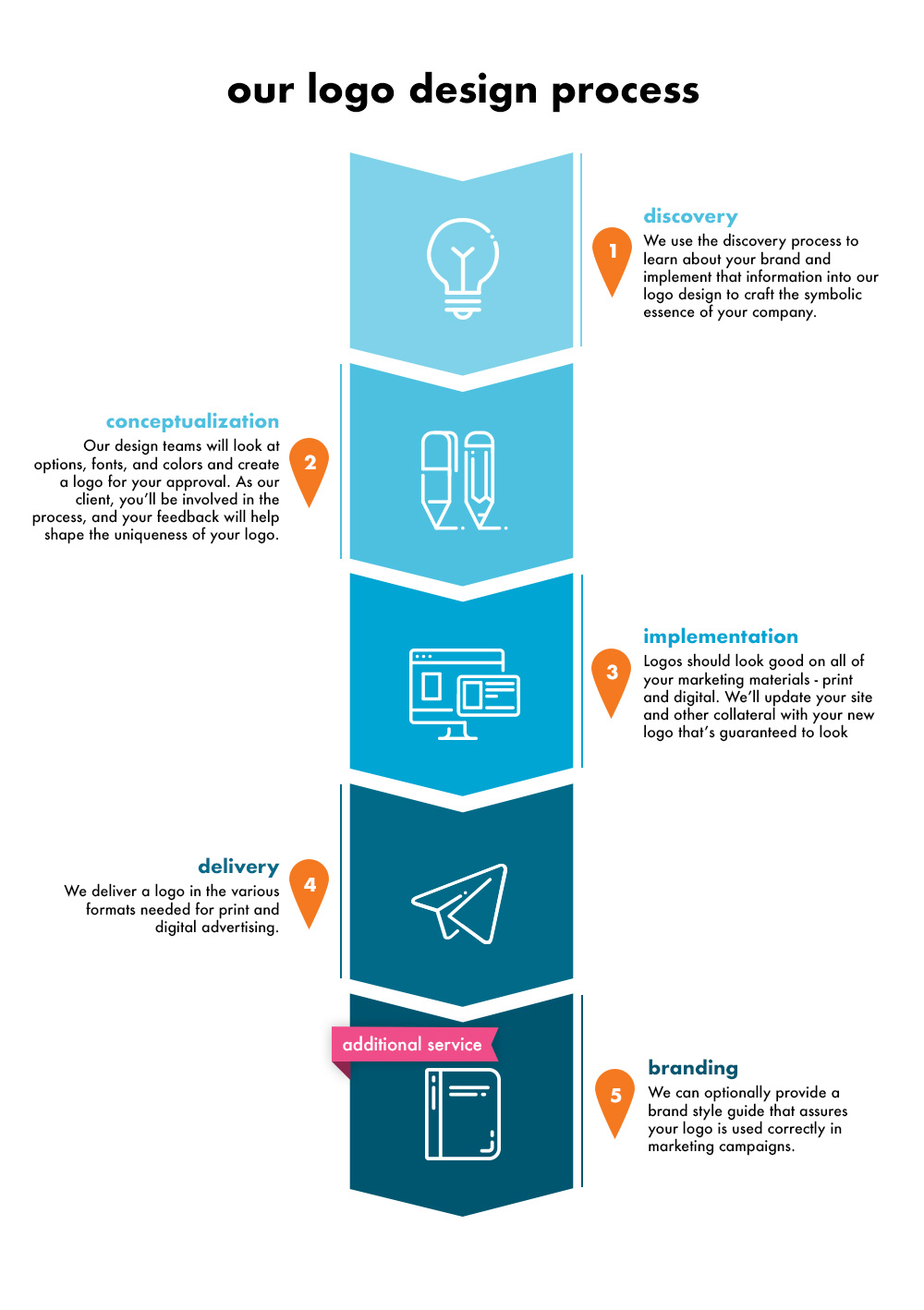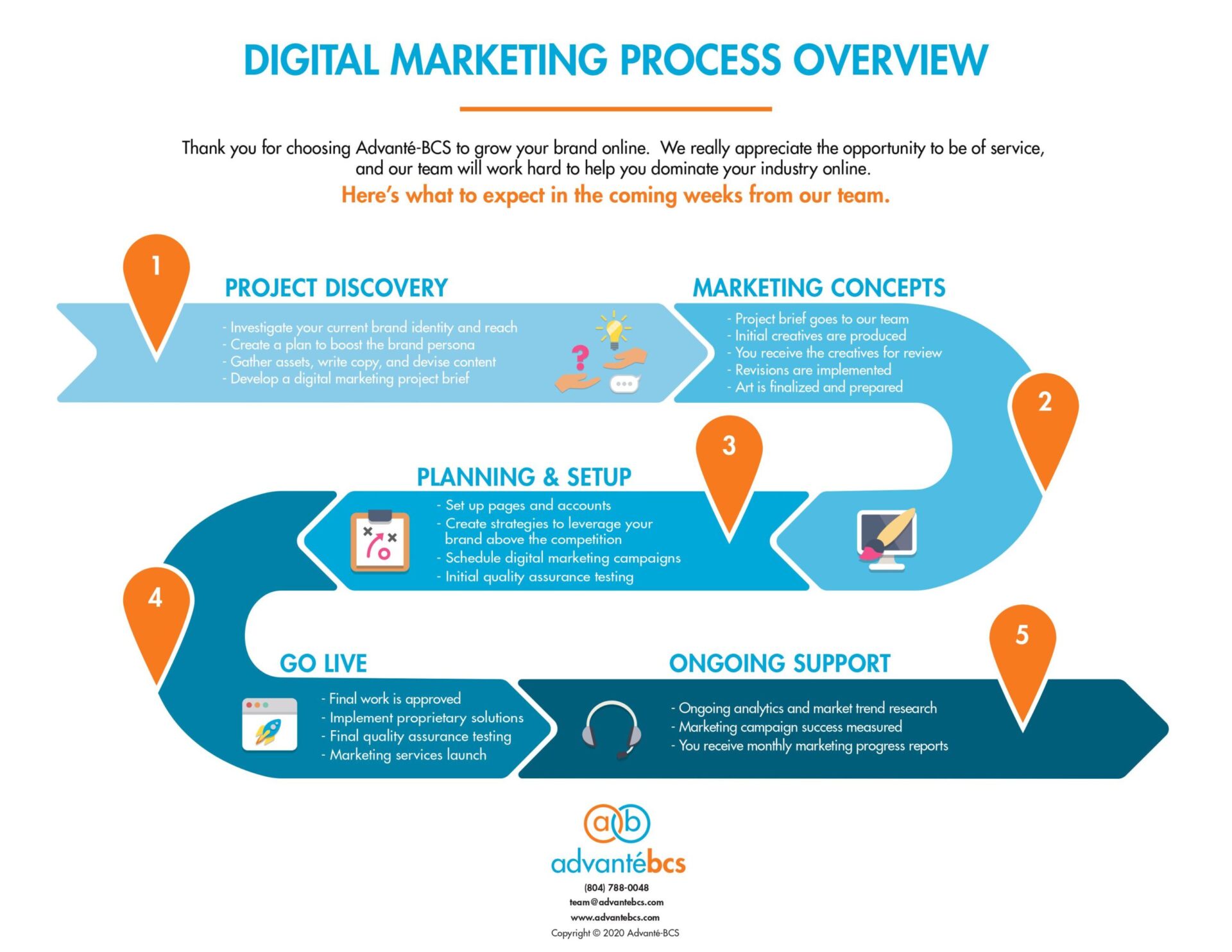
Phishing scams are one of the most common ways hackers can steal information or infiltrate your company’s info. Because they are so well-done these days, it can be hard to tell a legitimate contact from a scam. A phishing scam comes through an email, text, or phone call from hackers posing as a legitimate organization or contact in order to get users to click a link, install malware, or hand over sensitive information.
A current phishing scam that website owners deal with is an email claiming that images on a website are copyrighted. The email often claims that the website owner is on a trajectory to be sued by the image owner, complete with a link within the email that will “take you to the image in question.” However, if you click it, it will lead you to a page that will either install malware onto your computer or ask you to give up personal information.
Phishing scams come in many different forms, and you should always be on the lookout. Remember that most of your legitimate business and significant dealings will look and sound more official. Phishing scams often target people’s fears and emotions, usually by mentioning sensitive circumstances such as legal or financial trouble. You may have seen them before in many forms. Common phishing scams in the last few years include:
- Automated phone calls claiming “there is a warrant for your arrest, and your social security number has been put on hold until you speak to our representative.”
- “Your car’s warranty has expired. Please update your information to keep driving.”
- “Your insurance will no longer cover your medication starting next week. Please fill out this form and send it back immediately to continue coverage.”
- “This is ____, and we saw your business on the web and think it would be great to collab! Check out our website (link)!”
And, of course, the copyright phishing scam, which often begins with a scammer posing as the owner of a copyrighted image and threatening legal action over the use of “stolen” images.
These scam emails may look like this:

Or this:

These emails sound official, and many website owners click the links or give the senders their personal information in order to do what seems like the right thing in that scenario.
How to Tell the Difference Between Phishing Scams and Legit Claims
While phishing fraud is designed to make you panic and distract you, there are ways to tell if this is a legitimate phone call, email, or text. First, before giving out any information or clicking any links, take a good look at the communication. Is it very general? Is it coming from a legitimate source? If you Google the sender or company, does anything come up? You can also use Google, putting in the email title and typing “scam or not?”. Chances are, if it is a scam, the internet already knows.
If you get phone calls or emails from your “bank” or “insurance” company, compare it to old emails. Look at the content. Sometimes, it’s simply unrealistic. If you know that your car’s warranty is up to date, then you already know this phone call is a scam. Similarly, if you use a reputable website developer, you already know that all of your site’s images are licensed and legally available to use. If you’re unsure whether an email related to your website is legitimate, please contact your website developer before taking any action. They will know which concerns are reputable and which are the result of phishing scams.
Phishing and Copyright Claims
Copyright infringement is serious, and unfortunately, criminals will use this as an opportunity to prey on businesses. Despite the scam, website owners need to understand image licensing laws and only use images from a paid subscription to an image source, like shutterstock.com or bigstock.com. Otherwise, it can cost hundreds of dollars in legal fees. At Advanté-BCS, we make sure we’re providing our clients with premium content, which means everything we use is licensed and verified – so you don’t have to worry.





























